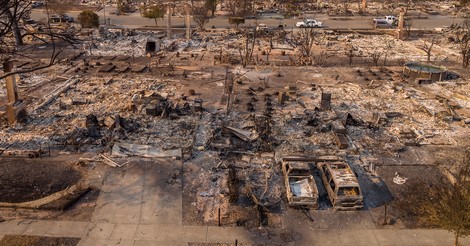Your podcast discovery platform
Curious minds select the most fascinating podcasts from around the world. Discover hand-piqd audio recommendations on your favorite topics.

piqer for: Climate and Environment Global finds Globalization and politics
I'm a freelance journalist, currently based in Madrid. I used to be a News Producer at CNBC in London before, but I thought a little bit more sun might do me good. Now I write for several news organizations, covering a range of topics, from Spanish politics and human rights for Deutsche Welle to climate change for La Marea.
Losing Earth: Who Murdered Climate?
Climate change, we know now, is here already. Scientists tell us all the time, but anyway, we just need to open our eyes to see its catastrophic consequences in every day's headlines. We can see the small, non-catastrophic ones in our daily lives. Nobody who may be reading this should be completely unaware: Climate change is here, it's us and it's really, really bad.
But that's not news. We've known about climate change for a long time. Last June was the 30th anniversary of the famous Hansen Hearing at the US Senate, where James Hansen, at the time director of NASA's Goddard Institute for Space Studies, said that the Greenhouse Effect was already changing the Earth's climate. This is the story of what happened before, and why our civilization is on the brink of disaster.
This extremely long and well-written article by Nathaniel Rich (which took me six hours to read) portrays the story of how climate change jumped from an obscure report to the object of the world's largest ever diplomatic effort. It tells the story of the people who fought to save Earth, and their efforts to reform American policy to stop CO2 emissions.
In this story we have two heroes, but no clear villain. Yes, John Sununu makes his appearance at the end of the story, but he's just the finger pulling the trigger. Who put the gun in his hand? Who murdered climate action?
Sununu is the embodiment of neoliberal ideology, that the author fails to point at. Sununu's reasons to reject Hansen are not scientific, but ideological. He believes he's part of a conspiracy to rein the market in. He still believes, with almost religious zeal, that no other outcome was possible, as shown in the epilogue.
Take heed. This is a very sad story. Even depressing. But, hey, the weekend is here, and it's hot outside. We still have time before the apocalypse. So why not take some time to read between the lines, and get to know how one ideology murdered us all.
Acknowledgments: Thanks to Christoph for the heads up and the comments!

important piq, for journalists and readers alike. muchísimas gracias! i'm impressed that nathaniel rich almost completely refrained from naming culprits, which lets one really concentrate on the narrative how the interplay of politicians, lobbyists & scientist can utterly fail. and failed. if you're interested in the names of the culprits read the article by robinson meyer in 'the atlantic' (https://www.theatlanti...). thanks for pointing this out, santi.
Naomi Klein from The Intercept also wrote a very good counter to this article which is worth a read as well.
https://theintercept.c...
Thanks, Michael and Christoph for the follow-up links!
I'm mostly seeing critical reviews about the story, and it's true that it lacks a deep analysis of the causes of climate failure. I would add that it presents quite a defeatist point of view, which doesn't help. But don't take me wrong, this is a very well-written and extremely interesting story that deserves your attention. You don't usually see articles with this scope. The documentation and investigation work is fantastic, and it is crafted with exquisite attention to detail. The photos are fantastic too. Do read it!
I agree with both Naomi Klein and Robinson Meyer, and their reviews are more or less in the same spirit as this one (particularly Klein's). Actually, if you're curious about the ideas put forward in this piq, I'd say it is a very good idea to read those reviews, as they take on angles I couldn't talk about here for lack of space.